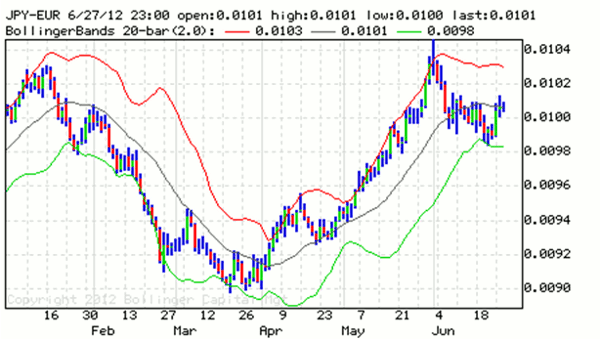Dr. Mike Campbell, contributor to DailyForex.com, outlines how Japan is currently undertaking measures to reduce its debt, which will affect the country's currency.
Japan has the largest level of public debt of any industrialized country, at more than twice the nation’s GDP.
Fortunately for the Japanese, much of this debt is held at home. But any loss of confidence in Japan’s ability to meet its obligations could send borrowing costs sky-rocketing.
In common with all political leaderships, the Japanese know they need to take steps to reduce their debt burden, not least because Japan is sitting on a demographic time bomb. Japan has an aging population, and it is estimated that 40% of its population will be of retirement age by 2060. As more people enter retirement, government revenues through income taxes will decline, but an older population will require ever greater expenditure on social security—most notably health care.
As a measure to reduce the debt burden, the government is pushing through a doubling of the sales tax, to 10%, which will be brought in from 2015. The measure has just passed the lower house, but it is highly divisive.
Understandably, the move is unpopular with the electorate, but it also risks a schism within the ruling DJP. 57 members of the government’s party refused to vote for the bill, and party founder Ichiro Ozawa has hinted that he could form a breakaway party. If this were to happen and gain enough traction, it could force Prime Minister Noda into a general election. The measures need to be approved by the upper chamber before they can pass into law.
Japan is still struggling with an overvalued currency, which has been buoyed as a safe haven. The yen currently stands around 12.7% higher against the euro than at this time last year. That higher move could continue if these measures are a success.
Dr. Mike Campbell is a British scientist and a freelance writer for DailyForex.com.











